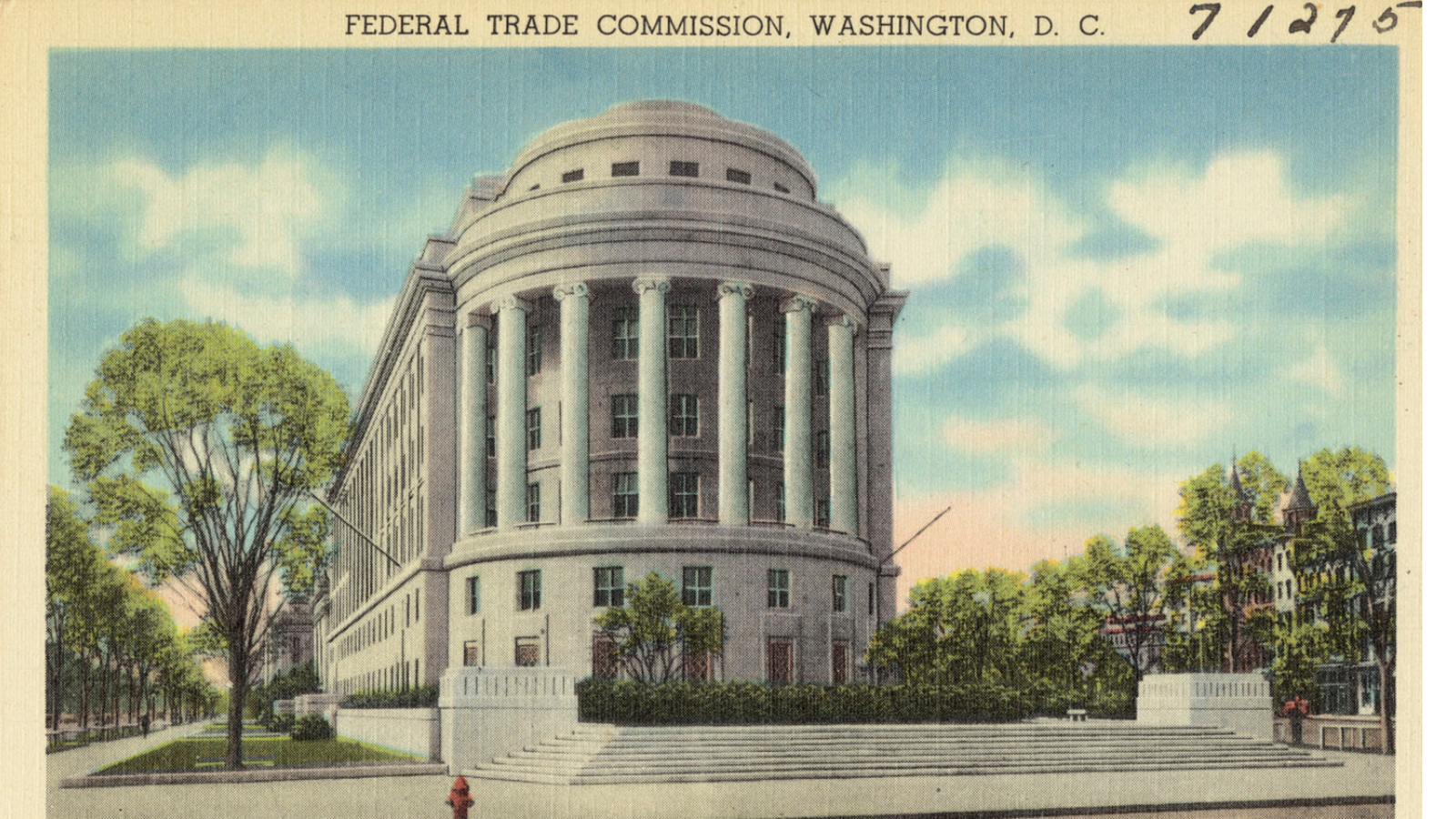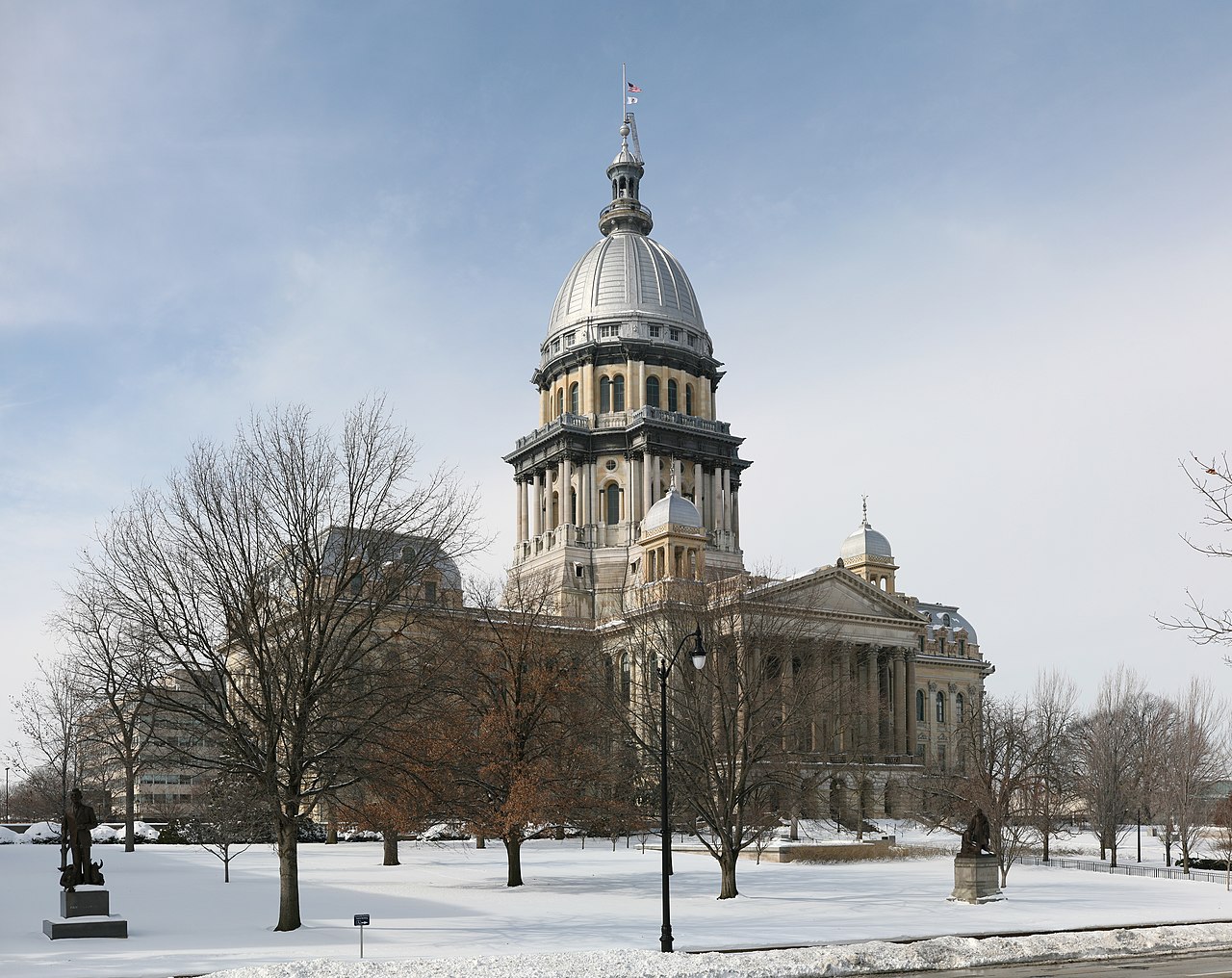
Senate Commerce to vote to restore FTC power to compensate victims of corporate wrongdoers
Last year, the Supreme Court eliminated the FTC's key authority to disgorge ill-gotten gains from corporate wrongdoers and use the money to compensate their victims. It was an unfortunate decision that benefited a convicted payday lender who fleeced thousands of victims and will allow brand name Big Pharma firms that block lower-cost generic competitors and other wrongdoers to escape billions of dollars in restitution. The Senate Commerce Committee is voting tomorrow on a bill to restore FTC powers. -- Cover graphic of FTC Building via Flickr, by Boston Public Library, Some rights reserved.

Last year, the Supreme Court eliminated the Federal Trade Commission’s Section 13(b) authority to disgorge ill-gotten gains from corporate wrongdoers and use the money to compensate their victims. It was an unfortunate decision in a case involving convicted payday lender Scott Tucker who fleeced thousands of victims. Unfortunately, it will also allow brand name Big Pharma firms that block lower-cost generic competitors and other wrongdoers to escape billions of dollars in restitution.
The Senate Commerce Committee is scheduled to vote tomorrow on S. 4145, the Consumer Protection Remedies Act of 2022 (Cantwell-WA) to restore FTC authority under Section 13(b). As a letter from leading consumer groups, including U.S. PIRG, Consumer Reports, the National Association of Consumer Advocates, National Consumer Law Center and others explained:
“Without § 13(b) authority, the FTC can no longer effectively strip the ill-gotten earnings from payday lenders that trick some of the most vulnerable consumers with hidden fees, or send adequate refunds to small business owners who had money illegally withdrawn from their accounts by lenders. And this also seriously undermines the FTC’s ability to combat practices of big tech companies that have taken advantage of their market power to crowd out small businesses and exploit consumers’ personal data. Between October 2016 and the Supreme Court’s holding in April 2021, the FTC refunded more than $11 billion to at least 12 million wronged consumers across the country.”
Expect the U.S. Chamber of Commerce to crank up its opposition to the bill to a fever pitch against consumer protection and against a strong FTC. Last year, following her testimony on the issue, Commissioner Rebecca Slaughter, then acting FTC chair, was compelled to send a letter to the committee rebutting the Chamber’s claims:
“…it is my view that the Chamber’s position is based on a fundamental misunderstanding of the history and function of Section 13(b). Congress’s adoption of such an approach would be a boon to those who engage in unfair, deceptive, or anticompetitive business practices, at the expense of harmed consumers and honest competitors. […] First, the Chamber is wrong that Congress always intended Section 13(b) to be used only in so-called “fraud cases.” As an initial matter, the Chamber’s reading has no basis in the text of the statute, which contains no such limitation. Indeed, the Commission relied on Section 13(b) for four decades to obtain billions of dollars of monetary relief for consumers in a wide variety cases, including numerous non-fraud consumer protection cases and competition cases. […] The Chamber says it wants only to restore limitations on Section 13(b) that previously existed. In reality, it advances new restrictions that never existed and would hurt consumers and honest competitors.”
Expect Senator Mike Lee (UT) to offer a gutting substitute bill he has prepared. It would accomplish what the Chamber seeks and then some. As our own consumer advocacy coalition letter concluded:
“As a starting point, the FTC must have the authority to obtain monetary and other equitable relief from those who would harm seniors, veterans, small businesses, and all vulnerable consumers; and must be able to seek injunctions to stop scams as they occur to prevent further harms to these same communities. We urge the Committee to refrain from imposing additional burdensome requirements, such as unduly restricting the statute of limitations period or requiring a higher standard of proof of wrongdoing.”
Okay, so the Supreme Court ruled that, for over 40 years, other courts, the FTC and Congress had read the FTC Act wrongly. S4145 simply reinstates the authority the FTC had to rein in wrongdoers, disgorge their ill-gotten gains and compensate their victims.
What kind of wrongdoers? As I wrote last year, “the egregiousness of Tucker’s criminal scheme was not at issue in the ruling. As a Deputy U.S. Attorney said in 2018 when he was sentenced to 200 months in prison (note the FTC case sought only civil, not criminal, penalties):
“For more than 15 years, Scott Tucker and Timothy Muir made billions of dollars exploiting struggling, everyday Americans through payday loans carrying interest rates as high as 1,000 percent. And to hide their criminal scheme, they tried to claim their business was owned and operated by Native American tribes. But now Tucker and Muir’s predatory business is closed and they have been sentenced to significant time in prison for their deceptive practices.”
Yes, no one likes fraudsters,crooks and grifters. But the FTC also used 13(b) to stop Big Pharma companies that used “baseless litigation to delay generic competition.” After the Court’s decision, the FTC was forced to withdraw from a case against Abbvie that had promised “$493.7 million in equitable monetary relief to return to consumers.” Section 13(b) had also been used in privacy and credit reporting schemes. The list goes on. In joint bipartisan testimony last year before the Senate Commerce Committee two days before the Supreme Court vote, the commissioners said:
“Over the past four decades, the Commission has relied on Section 13(b) of the Federal Trade Commission Act to secure billions of dollars in relief for consumers in a wide variety of cases, including telemarketing fraud, anticompetitive pharmaceutical practices, data security and privacy, scams that target seniors and veterans, and deceptive business practices, among many others. More recently, in light of the pandemic, the FTC has used Section 13(b) to take action against entities operating COVID-related scams. Section 13(b) enforcement cases have resulted in the return of billions of dollars to consumers targeted by a wide variety of illegal scams and anticompetitive practices, including $11.2 billion in refunds to consumers during just the past five years.”
The next sentence predicted the SCOTUS vote: “Section 13(b) is a critical tool in support of our enforcement missions, but its effectiveness is currently imperiled, and this uncertainty is hurting our ongoing enforcement efforts.”
Congress must reinstate this crucial tool to protect consumers and hold wrongdoers to account. It’s no longer imperiled. It’s gone.
Topics
Authors
Ed Mierzwinski
Senior Director, Federal Consumer Program, PIRG
Ed oversees U.S. PIRG’s federal consumer program, helping to lead national efforts to improve consumer credit reporting laws, identity theft protections, product safety regulations and more. Ed is co-founder and continuing leader of the coalition, Americans For Financial Reform, which fought for the Dodd-Frank Wall Street Reform and Consumer Protection Act of 2010, including as its centerpiece the Consumer Financial Protection Bureau. He was awarded the Consumer Federation of America's Esther Peterson Consumer Service Award in 2006, Privacy International's Brandeis Award in 2003, and numerous annual "Top Lobbyist" awards from The Hill and other outlets. Ed lives in Virginia, and on weekends he enjoys biking with friends on the many local bicycle trails.
Find Out More

Our 2024 priorities in the states

A look back at what our unique network accomplished in 2023

Mastercard, don’t sell my data

